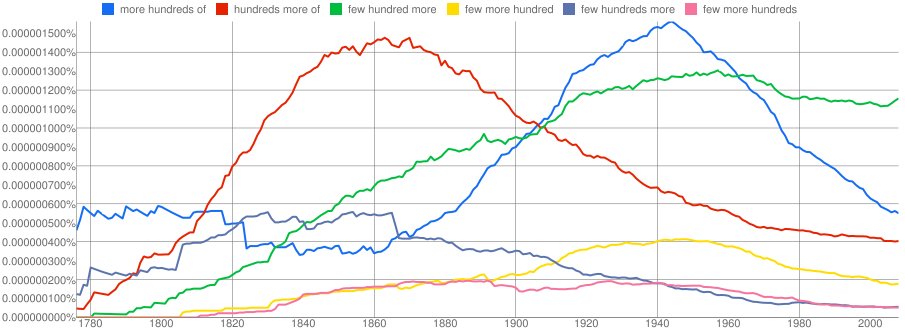We use the singular when the magnitude number is modified by few:
We need a few hundred dollars.
We need a few thousand widgets.
If we keep the object, we would put more after the number:
We need a few hundred more dollars.
We need a few thousand more widgets.
But if we drop the explicit object and go with the "few ... more" construction, the demarcation is not so clear, because the number becomes the object in the sentence:
We need a few hundred more.
We need a few thousand more.
We need a few more hundred.
We need a few more thousand.
While it is stylistically better to use the former in writing, you hear the latter case used all the time in speech, and it is readily understood. In this case, it would be misleading (or at least ambiguous) to pluralize the numbers, because it would imply that the number is an unbreakable unit. Note that the latter still considers the number to be somewhat unitary, but not rigidly so. This is an important distinction.
If you were to say
We need a few more hundreds.
it could be construed as meaning the need was specifically for hundred-dollar bills, instead of a quantity of money that is merely in the hundreds of dollars.
But if you say
We need a few more hundred.
you are asking the listener to consider "hundred" as a softer kind of unitary grouping.
Example from real life: When I got my current job, my salary demand was slightly higher than their range allowed. I declined the offer, but the company really wanted to hire me, so after consultations with management the company representative called me back and said, "It turns out we can come up with a few more thousand after all." He might easily have said "a few thousand more," but the way he put it put more emphasis on increments of one thousand than increments of "thousands of ones." I hope I'm making this clear, because the more I write, the finer this distinction sounds, and yet I do feel it is an important usage distinction to make and understand.

